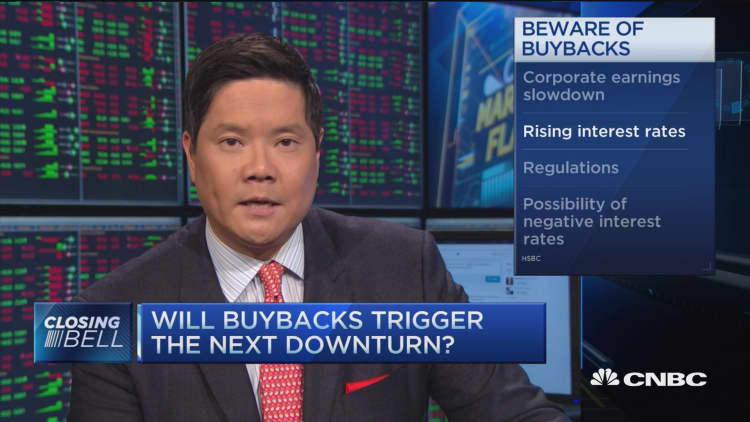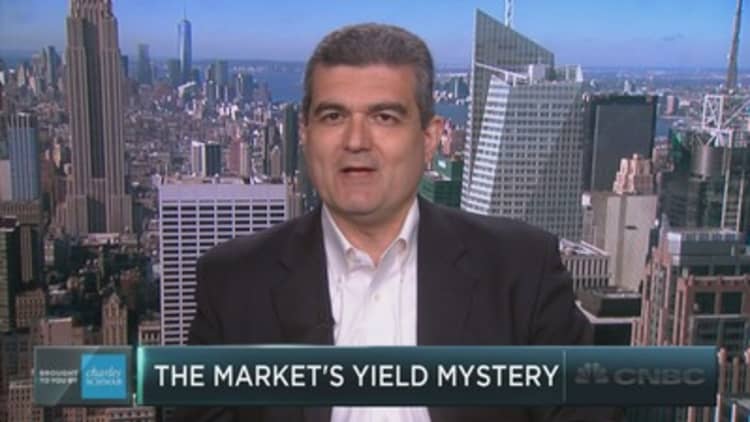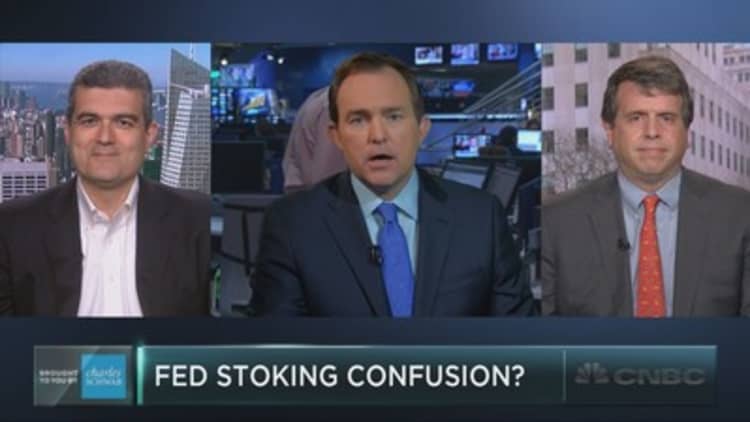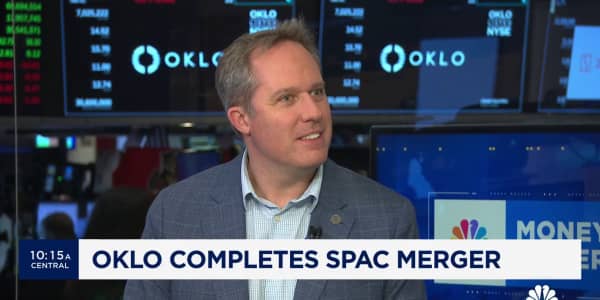



Stock buybacks, which have helped power the 7-year-old bull market, are showing their first signs of retreat in at least three years.
Share repurchases decreased 3.4 percent in the fourth quarter from the previous three-month period and are tracking at a 21-month low in March, according to respective data from S&P Dow Jones Indices and TrimTabs.
If the trend continues, that would mark a major trend shift. Companies have been using reductions in share count as a way to boost earnings profiles, raise stock prices and reward corporate executives. The programs have been seen as a major driver of the market rally, though the extent of the effect has come under scrutiny in recent months.
The most recent trend shows that buybacks have dwindled to $23.5 billion in March, just a month after hitting a 10-month high of $94.6 billion in February, TrimTabs reported in its weekly market summary. companies have committed more than $2.7 trillion to buybacks since the market bottomed back in March 2009.
For all of 2015, share repurchases totaled $572.2 billion, an increase of 3.4 percent from 2014.
However, the pendulum could be turning, due in part to several factors.
One obstacle to buybacks is the market simply getting more expensive. The S&P 500 now trades at about 17.1 times forward earnings, compared with the historical average of 16 times, according to Sam Stovall, U.S. equity strategist at S&P Global Market Intelligence.
Indeed, the buyback jump in February came as the market was bouncing off a bottom, while the slowdown in March has occurred amid a sharp recovery.
More than that, though, is that investors are tiring of companies devoting so much money toward buybacks and dividends and comparatively small levels to capital spending. Dividends and buybacks combined in 2015 for a record $954.6 billion, according to Howard Silverblatt, senior index analyst at S&P Dow Jones Indices.
In its latest Global Fund Manager Survey, Bank of America Merrill Lynch found that the level of market professionals who believe companies are spending too much on payouts — "fatigue with financial engineering," as the survey put it — has reached its highest level since the bull market began in March 2009.
Companies still are finding themselves under pressure, particularly from activist investors with shorter-term focus who like to see cash returned rather than invested.
However, results may win the day.
Buybacks are becoming an increasingly inefficient way to boost share prices, with individual companies that devote a large share of buybacks underperforming their peers over the past year.Caterpillar, for instance, has been a company aggressively buying back shares but with little to show performance-wise. The company has spent more than $8 billion buying back shares over the past three years, a time during which its stock has declined more than 12 percent.
More broadly, an exchange-traded fund that tracks the companies that commit the most to buybacks has performed poorly. The SPDR S&P 500 Buyback fund has lost about 9 percent over the past year, a time during which the S&P 500 index has been down about 1.2 percent.
In a recent report on the topic, PwC warned that corporate governance will need to get tougher on payout moves.
"Directors need to be prepared to pose tough questions to executives about the virtues of long and short-term capital allocation strategies," the report said. "Similarly, investors need to make informed investment and proxy voting decisions based on the interests of their specific constituencies — resisting any urge to follow the lead of those with a different focus."






